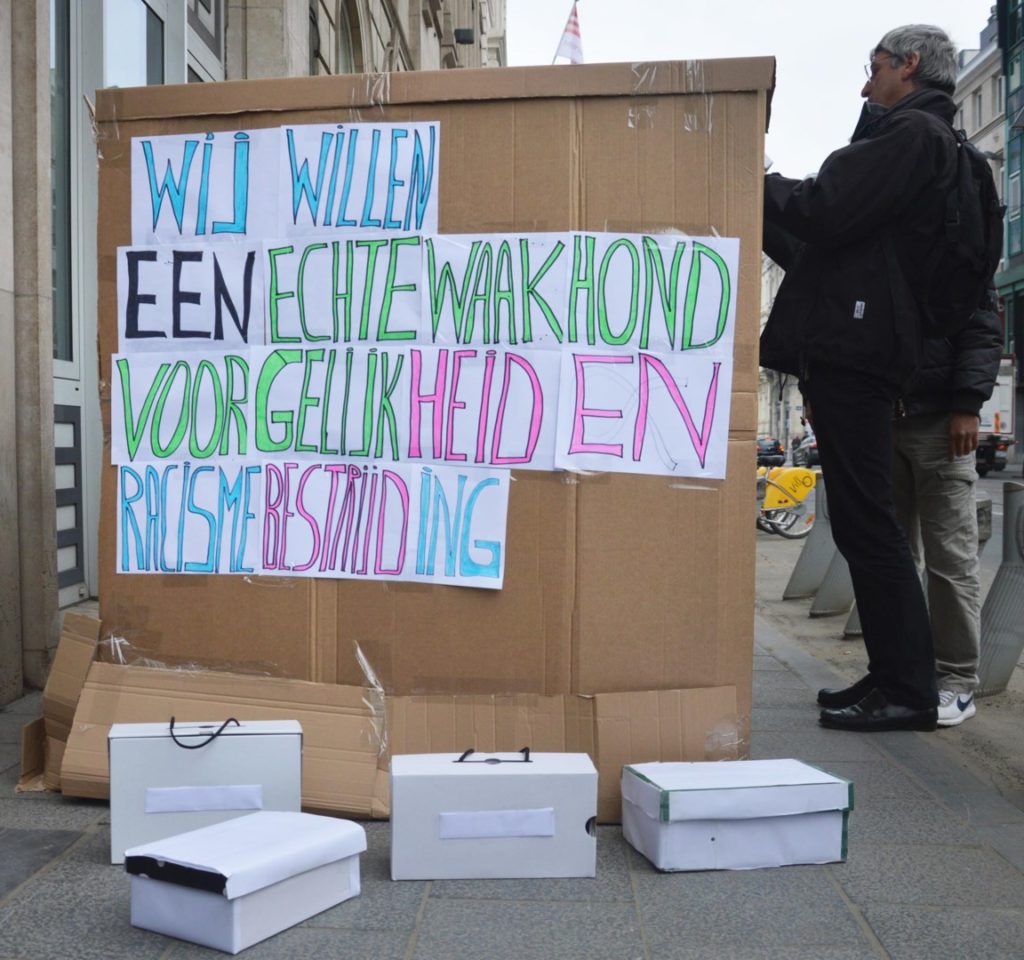As Flanders prepares to leave Belgium's national human rights institution Unia, there are fears that its own organisation will be put victims at risk of discrimination and provide less protection.
In a joint statement, 21 human rights organisations argued that Unia's Flemish alternative – the Human Rights Institute, which was announced in 2019 – risks "becoming a watchdog without teeth."
"We do share these concerns. We really do think that it will reduce the protection of victims in Flanders," Unia Director Els Keytsman told The Brussels Times.
Director of Amnesty International Vlaanderen, Wies De Graeve, argued that the independent institute, expected to be active by 15 March 2023, could not only lead to less assistance for victims, but also to fragmentation, and that it contradicts federal plans and international recommendations.
Vlaanderen wil weg uit #Unia & eigen mensenrechteninstituut. De plannen baren ons zorgen: ▪️ Versnippering ▪️ Minder bijstand voor slachtoffers discriminatie ▪️ In tegenspraak met federale plannen & internationale aanbevelingen,… ? terug naar tekentafelhttps://t.co/B6RidI6gy7
— Wies De Graeve (@DeGraeveWies) December 16, 2021
Lack of support and defence
The government hopes that its institution will obtain an 'A-status' according to the United Nations' Paris Principles, a set of internationally-recognised standards for these institutes. "On the basis of what is before us, this will not succeed," the opposing organisations argued.
The main concern is that the institute will promote human rights, "it will not have the power to go to court, whereas Unia does have that power," Keytsman asserted. In Flanders, victims will still be able to go to court themselves, but without legal and financial support offered by Unia.
Instead, complaints will be handled "primarily through mediation" and not in court – contrary to EU recommendations on the subject. Cases can be referred to a Dispute Resolution Chamber where a non-binding judgement can be issued, but it is not possible to submit a direct complaint.
Related News
- Gender-based cyberviolence to be added to ‘EU crimes’ list
- Vaccine inequality fuelled by reluctance to lift patents and share knowledge
- League for Human Rights calls for cuts in prisoner numbers
Flemish Society and Home Affairs Minister Bart Somers, responsible for creating the new body, maintains that the institute will exude sufficient authority, as does the similar Dutch model where 80% of the verdicts are respected.
However, Keytsman highlighted that in the Netherlands victims are given legal assistance at the local level; in Belgium, this will not be the case.
"We really think that this will reduce the protection of people who have issues with the Flemish authorities linked to the government, such as care, public transport and also in the labour market," she said.
Fragmentation and unequal protection
With various regional authorities working under different frameworks, Keytsman fears that this will create a fragmented landscape. This goes contrary to the government's aim to simplify protection and could see victims treated unfairly in Flanders compared to in Brussels and Wallonia.
Keytsman underlined concerns that the move will harm collaboration between different institutes and complicate cross-regional cases.
Moreover, the Flemish government wants to integrate other bodies, including the Children's Rights Commission and the Peace Institute, into the new system. The concerned organisations fear this will further damage the protection offered to individual victims.
The Flemish Council of Ministers will discuss the draft decree regulating the institute's creation for the first time on Friday.

